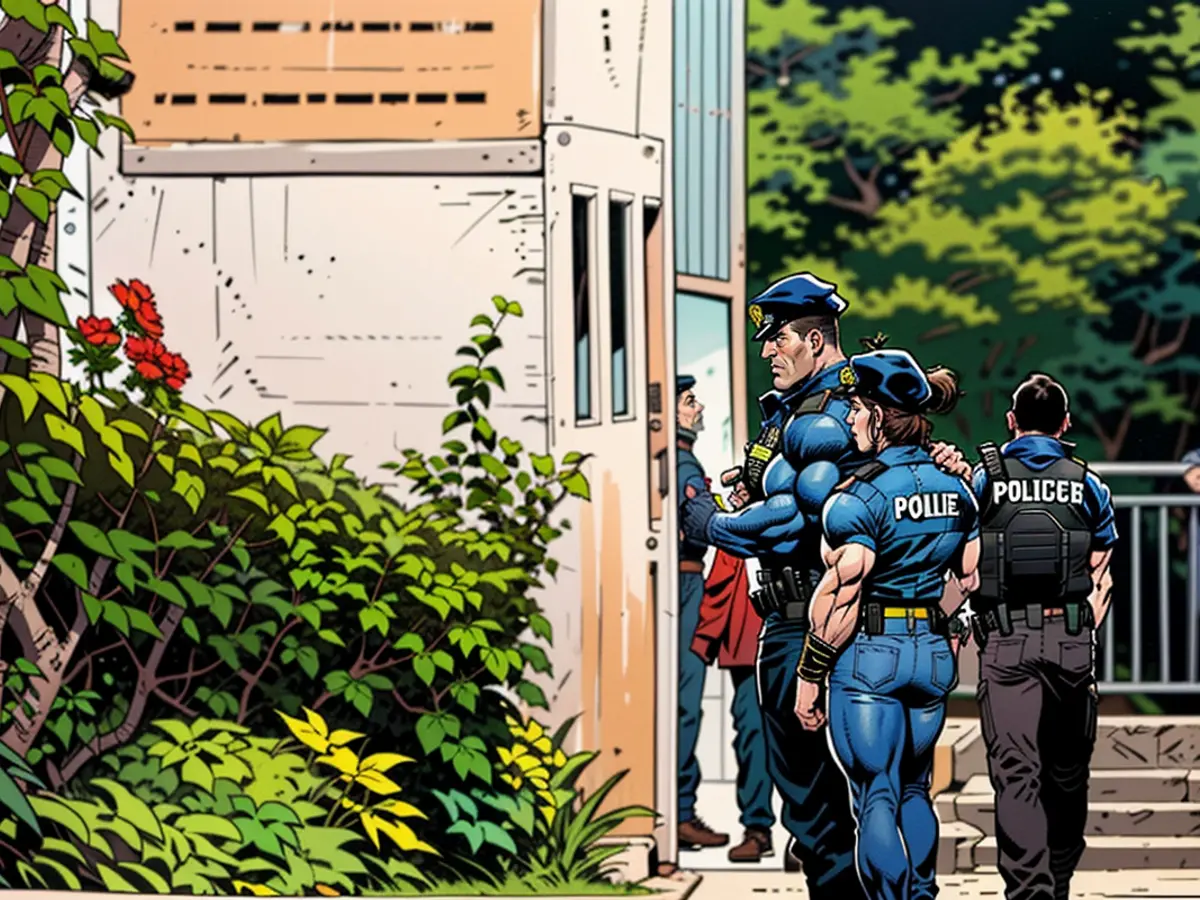Extremist Islamic Association - Breathing in Hamburg Politics after IZH-Ban
The closure and ban of the Islamic Center Hamburg (IZH) have been welcomed with ease by Hamburg's politics. "This day is good for Hamburg's city society," said Mayor Peter Tschentscher (SPD). Radical Islamism and antisemitism have no place in an open, democratic, and free Hanseatic city.
"This is a good decision and an important blow against the extended arm of the misogynistic Mullah regime in Iran," said Second Mayor Katharina Fegebank (Greens).
Blue Mosque seized
Before the implementation of the ban, the Federal Interior Ministry had labeled the IZH and its affiliated organizations as extremist and controlled by Iran. Early in the morning, the police seized the Blue Mosque operated by the IZH at the Alster, as well as nearly 30 other objects in the Hanseatic City. Raids also took place in Bremen, Berlin, Lower Saxony, Mecklenburg-Vorpommern, Hesse, North Rhine-Westphalia, and Bavaria, according to the Federal Interior Ministry. In total, it concerned 53 objects. Besides the Blue Mosque, three other Shia shrines were to be closed, it was reported.
Grote: IZH closure "significant hit" against Islamists
Senator for the Interior Andy Grote (SPD) spoke of a "real hit against Islamic extremism." The ban makes it clear: "As a constitutional state, we combat the enemies of our democracy harshly and effectively."
Hamburg's Head of the Office for the Protection of the Constitution (Verfassungsschutz) Torsten Voß said that the Hamburg Office for the Protection of the Constitution (LfV Hamburg) had been observing the IZH since the first publicly available Hamburg Constitutional Protection Report, which appeared more than 30 years ago. "The IZH has been an observational object for a long time." It is "an important instrument of Tehran to establish an antidemocratic and antisemitic Iranian state ideology within Germany and Europe."
Opposition criticizes late ban decision
The opposition in the Senate also welcomed the closure. CDU fraction leader Dennis Thering accused SPD and Greens of "allowing the IZH to operate for years without taking action and only resorting to a ban under massive pressure and much too late." "I hope that the Federal Interior Minister has used the long procedural time and that the ban is effective. Anything else would be a disaster," he said.
"It's wishful thinking to believe that with such a step alone, we can combat Islamism," said the chairman of the Left faction, Cansu Özdemir. "The number of violent Islamist*s in Hamburg is increasing constantly. Here, we must counteract with effective prevention work – in the Senate, there is still a lot of room for improvement."
Question about the future of the Blue Mosque as a place of worship
According to the co-chairwoman of the Hamburg Left, Sabine Ritter, the question now arises about the future of the Blue Mosque – "above all for Hamburg's Shi'ites, whom we cannot abandon: How can we ensure that this place remains a place of worship – without Iran pulling the strings," she said.
The ban came too soon, said Hamburg FDP Bundestag member Ria Schröder. "The closure of the IZH is good news above all for Jews and exiled Iranians in Hamburg and Germany."
- Andy Grote, Hamburg's Senator for the Interior, praised the closure of the Islamic Center Hamburg (IZH) as a "real hit against Islamic extremism."
- The Blue Mosque, operated by the IZH, was one of the 53 objects seized by the police across various German states, including Bremen, Berlin, Lower Saxony, and North Rhine-Westphalia.
- The Federal Interior Ministry had labeled the IZH and its affiliates as extremist, controlled by Iran, days before the implementation of the ban.
- Katharina Fegebank, Hamburg's Second Mayor, welcomed the closure, calling it an "important blow against the extended arm of the misogynistic Mullah regime in Iran."
- The opposition in the Senate criticized the late decision to ban the IZH, with CDU fraction leader Dennis Thering accusing SPD and Greens of allowing it to operate for years without taking action.
- Cansu Özdemir, the chairman of the Left faction, argued that the ban was not enough to combat Islamism, stating that the number of violent Islamists in Hamburg was increasing constantly.
- The closure of the IZH was good news for Jews and exiled Iranians in Hamburg, according to Hamburg FDP Bundestag member Ria Schröder.
- According to Sabine Ritter, the co-chairwoman of the Hamburg Left, the future of the Blue Mosque as a place of worship was a significant concern, particularly for Hamburg's Shi'ites.
- Peter Tschentscher, Hamburg's Mayor and the SPD's leader, emphasized that radical Islamism and antisemitism had no place in an open, democratic, and free Hanseatic city.
- Extremism was combated harshly and effectively by Germany as a constitutional state, as stated by Senator Grote, highlighting that the ban on the IZH was a prime example of this commitment.








